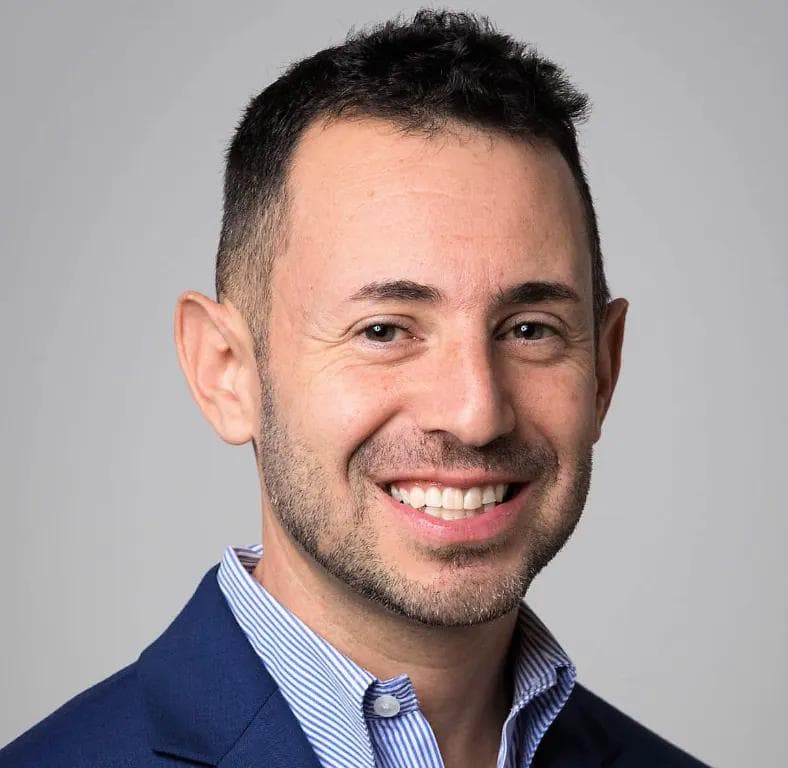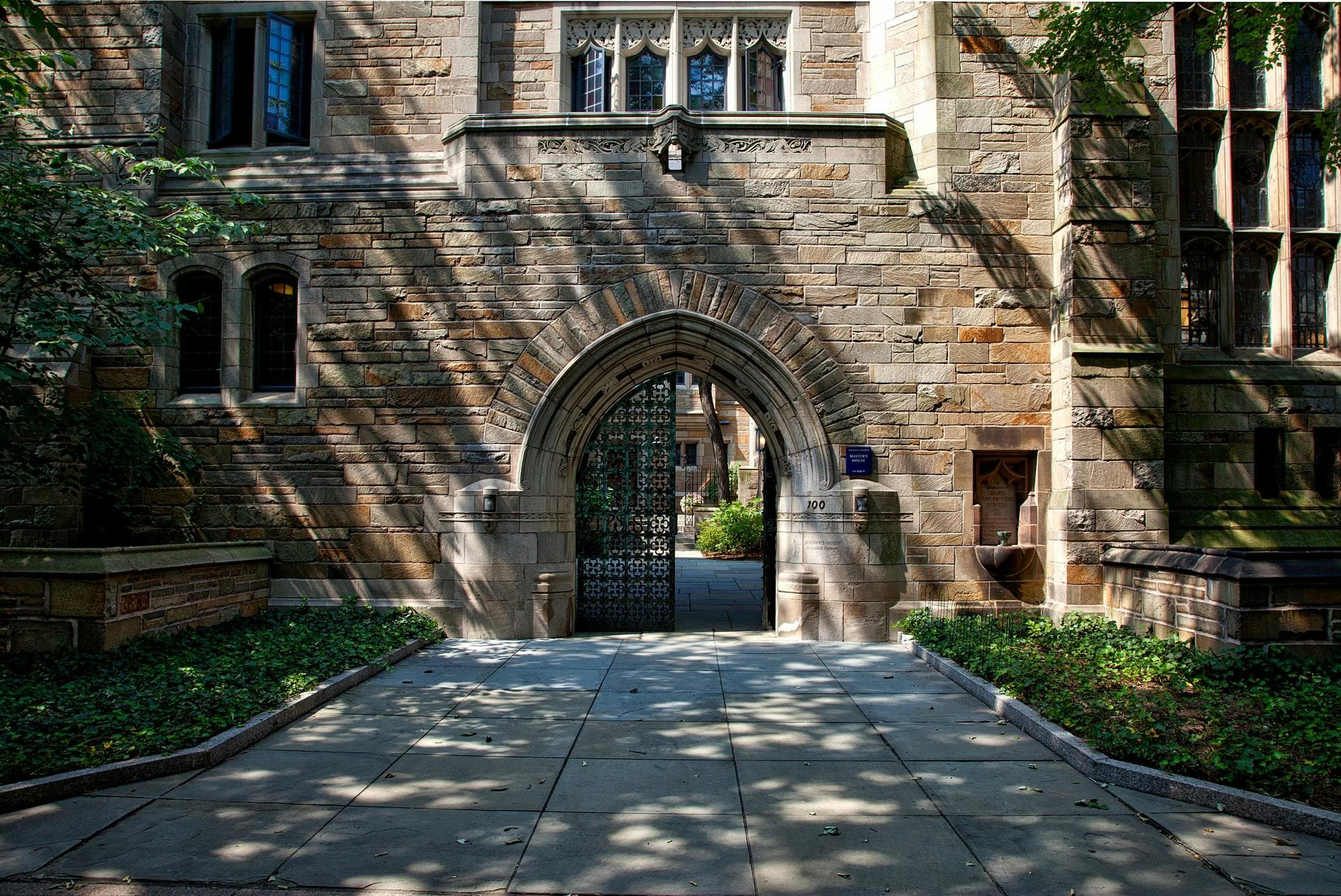
What Your College Counselor Gets Wrong (+ Everything You Need to Know about College Counselors)
I go to a good school - my high school’s college counselor is all I need…right? At Ivy Tutors Network, we get this question A LOT. We’re answering all your top questions about college counselors, including when a paid college admissions counselor is in your best interest.

Photo by Amy Hirschi on Unsplash
Whether you’re a public or private, small or large high school, your college counselors are there to help you on your college journey. In fact, virtually all colleges and universities require a letter of recommendation from your high schools’ college or guidance counselor. This makes them a critical part of your path to college. A lot of Ivy Tutors Network students and families think the college counselors at their high schools are all their child needs to get into an elite institution. It’s often not the case. We’re about to walk you through what college counselors can help you with and how to get the most from that relationship, plus what they get wrong - or can’t help you with in the first place.
What Does A College Counselor Do?
A high school college counselor (also called a school counselor or guidance counselor) is a school-based professional responsible for supporting students with academic planning, social-emotional development, and postsecondary planning (which includes college admissions). They work inside the school and are typically assigned to a group of students by grade or last name.
Typically a high school college counselor helps with academic planning, such as course selection, college list building, and application logistics, like filling out the FAFSA. They also write and submit the required letter of recommendation and school report for your college applications.
College Counselor Types
There are several different roles that are referred to as college counselors - and some that do the same thing but use a different title. Let’s walk through the variations.
College Counselor
A college counselor is the person or persons in your high school responsible for helping students navigate the college admissions process. Depending on the school, this might be their entire job. They’ll act as both social/emotional and practical support for the admissions process. They’ll help you choose the right schools to apply to, and write the letter of recommendation from a counselor required by all those schools.
Guidance or School Counselors
Guidance or school counselors often serve a broader range of student needs than college counselors. They’re typically the first line of defense for social, emotional, and mental health challenges in the student body. They may help students qualify for accommodations or in-classroom support for dyslexia or ADHD. They do post-secondary planning not just with college bound students, but students looking at trade or speciality schools, as well as those looking to join the workforce or armed services after college. That being said, in smaller high schools, they may also serve the role of college counselor.
College Admissions Counselor
Also known as a college admissions coach, a college admissions counselor is typically a private, paid advisor who offers highly individualized strategy. They often work with students as young as 7th or 8th grade up through 12th grade, creating clear paths to admission at top schools. Typically they work with students targeting elite institutions (top 25 or better), though they might also serve niche audiences like students seeking creative or performance majors, aspiring athletes, etc.
Admissions Counselors at Colleges
To keep things extra confusing, admissions counselors at colleges are sometimes called “college counselors”, though it’s a less accurate term for what they do. The role of admissions counselors is to interact directly with prospective students. They’re often assigned a specific geographic region and are responsible for recruiting, answering application questions, and interviewing students. Their role is specific to their college or university. What they know might apply to other places, but their role is to assist students interested in the school they work for - not advise on the fit of other institutions.
How to Get a Good Letter of Recommendation from your College Counselor
As we mentioned above, whether your school calls them a college counselor, guidance counselor, or something else entirely, you’ll need a letter of recommendation from this person for all of your college applications. Colleges use it for:
- Contextualization: Admissions officers want to know how you performed relative to your environment. Did you take the most rigorous courses? Were you a standout?
- Character Reference: A good counselor will comment on your character, growth, and contributions to the school.
- Filling Gaps: If there’s a dip in grades or a personal hardship, a counselor letter can explain and reframe it.
So how do you get them to write a letter of recommendation that’s helpful to you? And what if they barely know you?
If it’s early enough in your high school “career”, try to have regular face time with this person so they do get to know you. If that’s not possible, or you’re already a senior, be proactive.
- Schedule a meeting early to share your goals, activities, and narrative.
- Provide a brag sheet or résumé.
- If allowed, give them a summary of your ethos or PAGE framework story. (Many counselors appreciate guidance.)

Photo by Christina Morillo
What Your College Counselor Gets Wrong
You’ll probably be able to tell if your high school doesn’t have a strong college counseling system. There are few meetings, generic advice, and no clear plan. But where it gets trickier is when your school does have “good” college counselors. Many families with high achieving students fall into the trap of thinking their college counselors will provide them with everything their student needs to get into an elite school. But it’s not always the case. Here’s what many counselors miss:
- They treat the college process like a logistics task instead of a positioning challenge. Recommendation letters, test scores, and deadlines matter—but they’re the scaffolding. What actually builds the case is a student's intellectual identity and portfolio arc. Most counselors don’t have time or training to build that.
- They assume the job is to “support” the student rather than sharpen the story. Support is vital. But at selective levels, clarity matters more. Students don’t need a cheerleader. They need an editor, a strategist, and sometimes a polite contrarian.
- They underestimate how much admissions is about context. It’s not just what you do. It’s what your school offers, how you use it, and how you stretch beyond it. Too often, strong students with weak narrative positioning get passed over—not because they weren’t qualified, but because their application didn’t teach the reader how to advocate for them.
If you’re a student and your counselor is caring and well-intentioned, that’s a gift. But you’re still allowed to ask: What’s my academic throughline? What’s the story my activities are telling? Do my essays reinforce that, or distract from it?
And if no one is helping you answer those questions—you’re not behind. You’re just ready to start thinking at the level elite colleges require.
How To Find A College Counselor
If you’re talking about a school college counselor, your school will assign one to you. If you’re looking for a college admissions coach like the ones at Ivy Tutors Network, here’s how to find one that’s a good fit for you.
1. Clarify Your Goals
Before contacting anyone, ask:
- Am I aiming for highly selective schools (Top 25, Ivy+, HYPSM)?
- Do I need long-term planning (starting 9th–11th) or senior-year-only support?
- Is my biggest need essay help, major positioning, application strategy, or research mentorship?
Coaches like those at Ivy Tutors Network specialize in narrative and intellectual positioning—ideal for competitive applicants who need more than logistics.
2. Look for Strategy, Not Just Support
The best coaches help students:
- Select strategic majors based on competitiveness and internal college structure
- Build a research spine and advocacy deliverables
- Craft a cohesive application story across activities, essays, and interviews
Ask:
- Do they offer a defined method or framework (like the PAGE framework created by our Director of College Admissions, John Morganelli)?
- Can they help students develop original work (op-eds, research, local impact)?
- Do they understand departmental admissions nuances?
3. Verify Experience and Track Record
Look for:
- Former admissions officers at elite institutions (John led admissions at Cornell Arts & Sciences)
- Proven results: acceptances to Ivies, MIT, Stanford, UChicago, etc.
- Testimonials or media mentions
Ask:
- What is your background in college admissions?
- Have you worked with students targeting schools like mine?
4. Review Their Work Philosophy
Avoid counselors who:
- Rely on checklists, cookie-cutter resumes, or plug-and-play Common App advice
- Overemphasize results without process (e.g., "We’ll get you in if you follow X")
Look for someone who:
- Builds student agency (not ghostwriting or over-polishing)
- Emphasizes reflection, voice, and alignment
- Sees college admissions as a transformational storytelling process, not just a transaction
5. Ask the Right Questions During a Consultation
Here are 5 high-leverage questions to ask a potential coach:
- How do you help students develop their academic or research identity?
- Can you explain how you help students select majors strategically by school?
- Do you help students create advocacy, writing, or public-facing work?
- How do you structure essay development to ensure the student’s authentic voice?
- Can you show me how your approach differs from what a school counselor provides?
6. Look for Depth, Not Dazzle
Some high-priced services lean on branding without offering real intellectual development. Ask:
- Do you meet regularly over time—or only during the application season?
- Do you track student progress across deliverables?
- How do you ensure that every part of the application contributes to a single ethos?

Photo by Clay Banks on Unsplash
Who Benefits from a Paid College Counselor?
1. Students Aiming for Elite Institutions (Top 25, especially HYPSM & Ivies) Elite colleges demand more than grades and test scores. Successful applicants must show:
- Thematic academic depth (usually through a research question)
- Narrative cohesion across all parts of the application
- Strategic selection of college type and major, tailored to the institution’s internal structure
- Personalized “deliverables” like op-eds, projects, and advocacy work
Students applying to:
- HYPSM (Harvard, Yale, Princeton, Stanford, MIT) need top 3–7% metrics plus depth in 2–3 academic areas, local research, and an advocacy deliverable
- Ivies and Peers (Penn, Duke, Brown, etc.) still require a sophisticated academic spine and compelling story
These students benefit most from a counselor who knows how to:
- Engineer an application narrative (ethos) using the PAGE framework
- Leverage less popular or less competitive departments strategically
- Develop a local or personal connection to a major theme
2. Students With Complex Academic or Extracurricular Backgrounds If a student has:
- Unconventional or nonlinear interests
- Gaps between academic strengths and intended major
- Strength in narrative or creative thinking but little “proof” on paper
They benefit from a narrative architect who can frame those experiences within a coherent ethos using tools like research questions, thematic essays, and activity framing.
3. Students at Under-Resourced High Schools Public school counselors often serve hundreds of students and may not have time or training to:
- Strategize major/college type by institutional competitiveness
- Help a student craft a research deliverable or advocacy article
- Refine essays beyond surface-level edits
A private counselor can offer what the school can’t: 1:1 strategic direction, iterative revision, and portfolio building.
Can a Student Get Into a Top 25 School Without a Private Counselor?
Yes—but with key caveats.
A student can be admitted without formal advising if they or their support system independently manages to:
- Select the correct college type and strategic major
- Develop a clear, layered academic narrative
- Create research and advocacy deliverables
- Demonstrate intellectual curiosity through real work, not just résumé padding
- Align every piece of the application using PAGE (Perspective, Activity, Goal, Ethos)
But here’s the truth: very few students can pull this off without significant mentorship or a counselor like those at Ivy Tutors Network. Schools like Harvard and Stanford are no longer impressed by basic credentials: they want coherent intellectual identity and evidence of contribution.
Who Doesn't Necessarily Need a Paid Counselor?
1. Students Not Targeting Highly Selective Colleges If a student is aiming for schools with 30–50%+ admit rates and meets GPA/test minimums, a paid counselor may not be necessary unless:
- The student needs substantial motivation or planning support
- They are seeking merit aid through narrative or niche interest packaging
2. Families Already Highly Engaged in the Process Parents or mentors who:
- Understand college admissions cycles
- Have time to help with essays
- Can offer feedback and access relevant resources
…may not need external help unless aiming for the most selective schools.
3. Students with Strong In-School College Counseling Programs Some private or well-resourced public schools already offer:
- Personalized essay support
- College research tools
- AP alignment and summer planning
In such cases, a paid counselor may add marginal value unless targeting top 10 schools.
How Much Does A College Counselor Cost?
College counselors or college admissions coaches aren’t cheap. You’re typically looking at $15,000 or more, with $40,000+ being entirely possible. Pricing ultimately depends on things like the length/depth of the engagement (multi-year strategy, research development, deliverables, personal advising, etc.) and the backgrounds of the counseling team (former senior admissions officers from elite institutions cost more).
This does not mean there isn’t support or options out there if you’ve got big dreams but your family doesn’t have a large budget. Students from less affluent backgrounds should focus on strategy. Privilege is not what builds a powerful application: arm yourself with a perspective, a question, and a story and you’ll have what you need to create an impressive narrative across your application.
Thinking about a College Counselor? Final Considerations
Deciding to work with a private college consultant or college admissions coach is about your goals: the higher your aiming, the more you’d benefit from external support. College counselors in high schools do a lot of good and have a lot of knowledge, but they typically lack the time, the depth of knowledge, or both, that it takes to get you into an elite institution. Use the questions we outlined above to find a college counselor that fits your needs - or book with us!
College Admissions Coaching from Ivy Tutors Network
Ivy Tutors Network offers several ways to access our college admissions coaching services depending on your needs and budget.
BluePrint
Begin your college admissions journey the best way possible: with a custom-tailored BluePrint for $1999. Created specifically for Ivy Tutors Network clients by John Morganelli, former Director of Admissions at Cornell University, this invaluable resource provides a custom admissions plan starting Freshman year of high school. Students complete a short interview combined with an in-depth intake form and receive a 30+ page detailed plan that includes both personalized recommendations and critical college application information. After you’ve received your BluePrint, our team will walk you through it during a comprehensive consultation, included in the cost. Learn more or sign up now.
CollegeBoost
The next level up, CollegeBoost includes 38 live, interactive classes covering every aspect of the Common App, personal statements, supplements for the most competitive U.S. universities, and specialized content for auditions and portfolios, as well as step-by-step guidance and direct feedback from John Morganelli. $999/mo for three months. Learn more and sign up here.
One-on-One Counseling
Let us help you from start to finish. Priced depending on which grade the student is in, our College Advising Concierge packages include all of our services, from creating a strategic, personalized plan for getting into the college of your dreams to helping you execute the plan and submit those applications. Schedule a free consultation.




